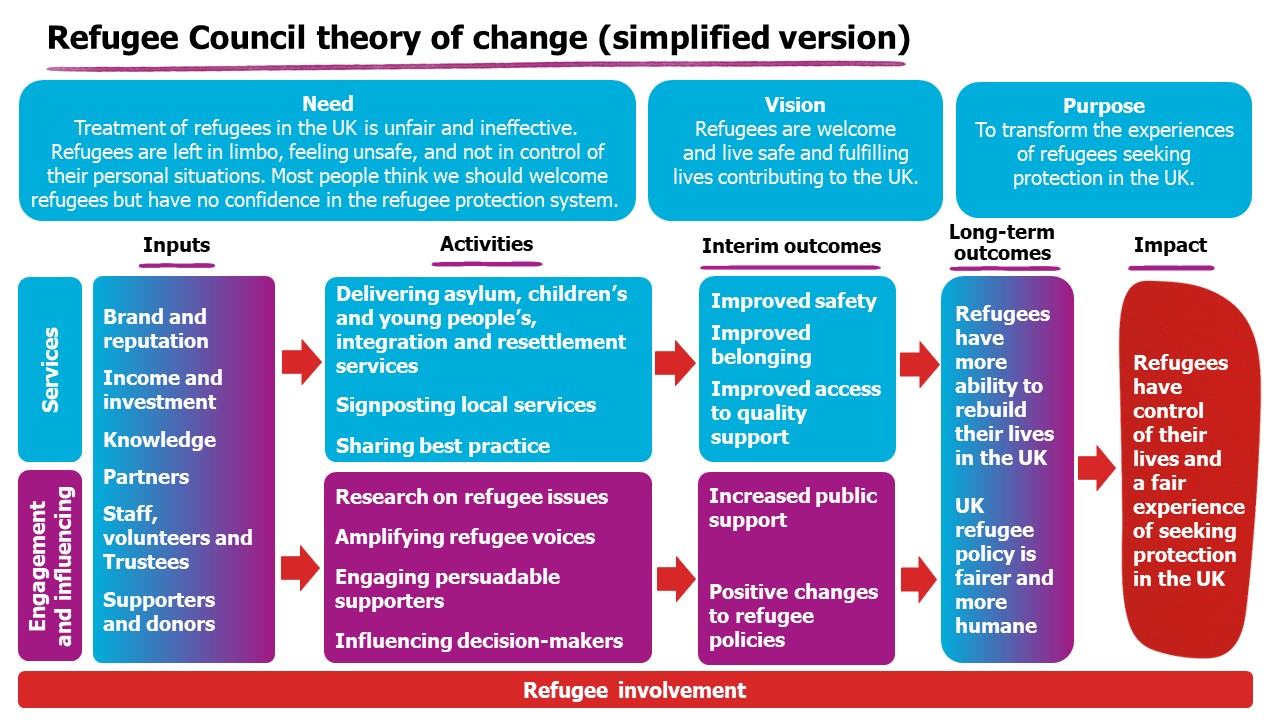To help us move towards that vision, we have developed a theory of change that shows, on a single page, how we contribute to long-term change with refugees.
What does our theory of change show?
Our theory of change doesn’t capture every detail of our work, but it shows simply how:
- Our people and resources (inputs)
- enable us to deliver services, engagement and influencing (activities)
- that lead to changes or benefits for refugees (outcomes)
- and contribute to long-term, sustained change (impact).
- that lead to changes or benefits for refugees (outcomes)
- enable us to deliver services, engagement and influencing (activities)
This shows that we can only achieve impact if we work together across teams, collaborate with partners and have meaningful refugee involvement in our work.
The full version of our theory of change has a lot of detail so we created a simpler version to make it easier for everyone that we work with to see how we help to deliver impact with refugees.

Who developed our theory of change?
Colleagues from our Services, Refugee Involvement, Fundraising and External Affairs teams worked with two of our trustees to develop our theory of change. It was tested with clients, supporters and refugee community organisations in one-to-one interviews and focus groups.
We will continue to work with refugees to develop another version of our theory of change for refugee clients. This is one of our pioneer refugee involvement projects.
Why do we need a theory of change?
Our theory of change will help us to:
- Have a shared understanding of the impact we want to achieve.
- Prioritise activities that achieve most impact for refugees.
- Measure our progress towards the impact we want to achieve.
- Learn and improve as we collect more outcomes data.
- Attract funders and partners by showing the impact of our work.
How will we use the theory of change?
We will use the theory of change to:
- Explain to funders, partners, supporters, and refugees how we contribute to long-term change.
- Collect impact data for more areas of our work, building on the impact data we are collecting across our services.
- Review, report and reflect on the data and use it to learn and improve how we deliver our work.
- Make decisions about new service delivery, funding and partnership opportunities based on how well they support our theory of change.
Learn more about our strategy

